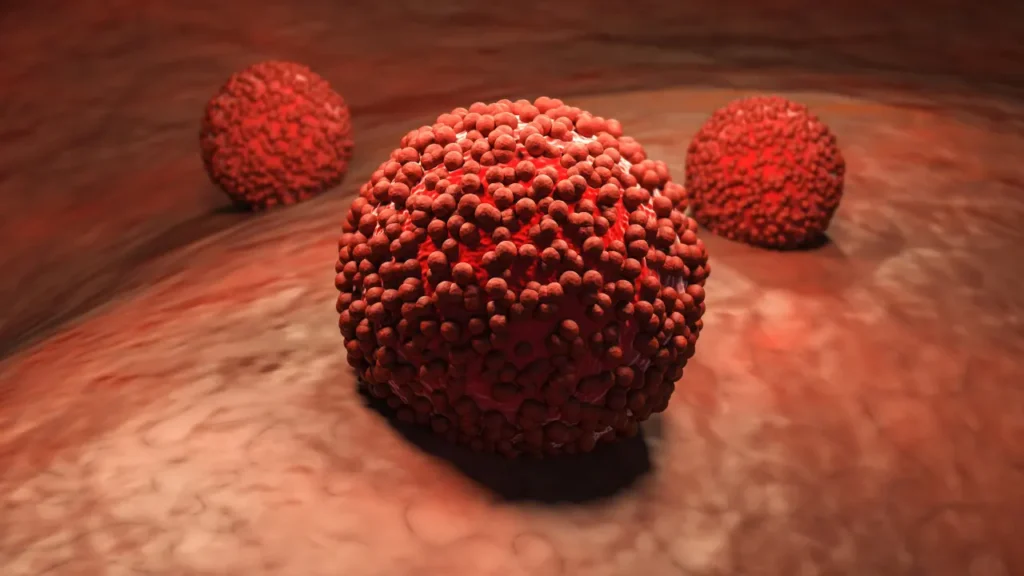A naturally occurring substance called ascorbigen is mostly present in cruciferous vegetables like broccoli, cauliflower, cabbage, and Brussels sprouts. When indole-3-carbinol (I3C) and ascorbic acid (vitamin C) are conjugated, a distinctive and complex molecule is created that is stable and biologically active. Ascorbigen has received attention recently due to its potential health advantages, including its antioxidant, anti-inflammatory, and anticancer qualities, despite it being a nutritional supplement that has received comparatively little research. The goal of this article is to give a thorough overview of ascorbigen’s chemistry, health advantages, recommended dosage, side effects, and potential drug interactions, as well as how to take it responsibly.
You May Also Like:
Keep Your Brain Young With the 5 Most Powerful Nootropic Supplements
Finding the Best Supplements for Brain Fog After COVID: 5 Top Brands Reviewed
Ascorbigen: Benefits, Dosage, Side Effects, Drug Interactions, And Other Important Information is an original (NootropicsPlanet) article.
Nature of Ascorbigen
Ascorbigen occurs naturally in cruciferous vegetables. Examples of cruciferous vegetables are broccoli, cabbage, kale, turnip, etc. While ascorbigen supplementation may offer a focused method of obtaining these advantages, it is crucial to take into account the advantages of eating entire meals that offer a variety of nutrients and bioactive substances.
Adding cruciferous vegetables to one’s diet is an easy and efficient strategy to boost ascorbic acid consumption and advance general health. These vegetables have a wide range of culinary uses because they can be eaten raw, steamed, boiled, stir-fried, or roasted. Including cruciferous vegetables in the diet has been linked to several health advantages, including enhanced gut health, decreased inflammation, and a reduction in the risk of chronic disease.
Health Benefits of Ascorbigen
One of the acclaimed health benefits is the strong antioxidant properties of ascorbigen. Ascorbigen exhibits strong antioxidant action because it is made up of ascorbic acid and an indole moiety. Ascorbic acid is a well-known antioxidant and it can prevent oxidative damage to biological components by scavenging free radicals and reactive oxygen species (ROS). By regulating the activity of different antioxidant enzymes such as superoxide dismutase, catalase, and glutathione peroxidase.
Ascorbigen also has anti-inflammatory effects that can inhibit the production of pro-inflammatory cytokines including tumor necrosis factor-alpha (TNF-alpha) and interleukin-6 (IL-6). Ascorbigen may reduce inflammation by preventing the synthesis of these cytokines. Thus, inflammatory disorders like rheumatoid arthritis, atherosclerosis, and inflammatory bowel disease can be kept at bay with ascorbigen supplementation.
Ascorbigen has been demonstrated in numerous studies to have anticancer characteristics, notably through inducing apoptosis (programmed cell death) and inhibiting cell proliferation in a variety of cancer cell lines, including breast, prostate, and colorectal cancer. By regulating the activity of phase I and II detoxification enzymes, which are essential for the transformation and removal of carcinogens from the body, ascorbigen may also contribute to the prevention of cancer.

Chemistry of Ascorbigen
Ascorbigen is created when ascorbic acid (vitamin C) and indole-3-carbinol (I3C) conjugate in an acidic environment. The resultant molecule has the chemical composition C18H16N2O7, a stable and physiologically active compound, and a molecular weight of 372.33 g/mol. A five-membered lactone ring and a six-membered aromatic indole ring are found in the ascorbigen structure that is joined to the ascorbic acid molecule by an ester bond.
Ascorbic acid also known as vitamin C is water soluble and not stable. However, the addition of an indole ring, which confers resistance to oxidation and degradation leads to the formation of a stable structure, ascorbigen. Since ascorbigen is stable, it enables effective absorption in the gastrointestinal system and maintenance of its biological action in the body.
Physiological Mechanisms of Action of Ascorbigen
Ascorbigen exerts its health-promoting effects through a variety of physiological mechanisms that involve numerous interrelated pathways. The key physiological modes of action of ascorbigen are described in the sections below:
Antioxidant Properties:
Strong antioxidants like ascorbic acid can scavenge free radicals and reactive oxygen species (ROS), reducing cellular deterioration and upholding cellular redox equilibrium.
Anti-inflammatory Effects:
Ascorbigen controls the inflammatory response by controlling the synthesis of pro-inflammatory cytokines and inhibiting the activity of nuclear factor-kappa B (NF-B) and interleukin (IL-6).
Anti-cancer Effects:
Ascorbigen has shown anticancer activity in a variety of cancer cell lines. By regulating the expression of pro- and anti-apoptotic proteins like Bax and Bcl-2, ascorbigen induces apoptosis (programmed cell death) in cancer cells. Ascorbigen may also stop the cell cycle at particular checkpoints, halting the proliferation of cancer cells by blocking uncontrolled cell division. Aside from apoptosis, the modulation of phase I and phase II detoxification enzymes, which are in charge of the transformation and removal of carcinogens from the body, is another anticancer mechanism of ascorbigen. Ascorbigen may lessen the buildup of carcinogens and, thus, the chance of developing cancer by increasing the activity of these enzymes.

Optimal Dosage of Ascorbigen
Due to the dearth of clinical trials and the wide range of individual responses to the supplement, determining the ideal dosage of ascorbigen is difficult. A daily dose of 200–400 mg of ascorbigen, according to preclinical and clinical research, appears to be safe and may be effective for the majority of people. It is crucial to remember that the ideal dosage may change depending on elements like age, sex, body weight, and general health. Before starting an ascorbigen supplementation regimen, it is advised to speak with a healthcare provider to achieve the best outcomes.
Side Effects of Ascorbigen
When taken within the approved dosage range, ascorbigen is typically regarded as safe. However, some people could develop minor side effects like diarrhea, bloating, and gastrointestinal pain. Most of the time, these adverse effects are brief and go away on their own after using the supplement for a while or stopping it altogether. However, there are rare cases in which people who are known to be allergic to cruciferous vegetables may also be allergic to ascorbigen supplementation. It is essential to stop using the supplements right away and seek medical advice if you develop any serious side effects or allergic reactions.

Potential Substance Interactions with Ascorbigen
Although the possibility for drug interactions with ascorbigen has not been well investigated, it is important to take into account that two of its main chemicals, indole-3-carbinol (I3C) and ascorbic acid, may interact with particular drugs.
I3C may interact with drugs that are metabolized by the cytochrome P450 (CYP) enzyme system, including immunosuppressants like cyclosporine, anticoagulants like warfarin, and anticonvulsants like phenytoin. These interactions may change the mechanism of a drug’s works and raise the possibility of negative side effects. Before mixing ascorbigen with drugs metabolized by the CYP enzyme system, it is imperative to speak with a medical expert.
Furthermore, certain medications, such as anticoagulants like warfarin, antiviral drugs like indinavir, and antineoplastic treatments like methotrexate, may interact with high dosages of ascorbic acid.
Best Responsible Uses of Ascorbigen
- Before beginning ascorbigen supplementation, speak with a medical practitioner, especially if you are pregnant, nursing, have a pre-existing ailment or are taking any drugs that ascorbigen may interfere with.
- Start taking ascorbigen supplements at a low dose and gradually raise them while keeping an eye out for any negative side effects or changes in your general health.
- Ensure the ascorbigen supplement is purchased from a reliable supplier who follows stringent quality control guidelines and offers a certificate of analysis to attest to its efficacy and purity.
- Use caution if you’re taking ascorbigen along with other dietary supplements or medications.
Ascorbigen:
Conclusion
In summary, ascorbigen is a stable compound derived from vitamin C and an indole moiety. Ascorbigen can be widely found in cruciferous vegetables. Research on ascorbigen has been increasing as it receives attention as a potential supplement to increase antioxidant levels in the body. It is also an anti-cancer component that can inhibit the production of TNF-alpha and IL-6 as mentioned in the previous paragraph.
Ascorbigen presents an intriguing avenue in the realm of health and nutrition. Before incorporating ascorbigen into your diet, you should make sure that you are not allergic to these compounds and are not taking any drugs that might have possible reactions with ascorbigen. The best way to incorporate a decent amount of ascorbigen in your diet is not to keep your diet balanced and varied even while taking asborbigen as a supplement.

References:
- Ascorbigen: Chemistry, Occurrence, and Biologic Properties. Retrieved from:https://pubmed.ncbi.nlm.nih.gov/19168003/
- Antioxidative Properties of Ascorbigen in Using Multiple Antioxidant Assays. Retrieved from: https://pubmed.ncbi.nlm.nih.gov/25273138/
- Ascorbigen And Other Indole-Derived Compounds from Brassica Vegetables and Their Analogs as Anticarcinogenic and Immunomodulating Agents. Retrieved from: https://pubmed.ncbi.nlm.nih.gov/8022861/
Important Note: The information contained in this article is for general informational purposes only, and should not be construed as health or medical advice, nor is it intended to diagnose, prevent, treat, or cure any disease or health condition. Before embarking on any diet, fitness regimen, or program of nutritional supplementation, it is advisable to consult your healthcare professional in order to determine its safety and probable efficacy in terms of your individual state of health.
Regarding Nutritional Supplements Or Other Non-Prescription Health Products: If any nutritional supplements or other non-prescription health products are mentioned in the foregoing article, any claims or statements made about them have not been evaluated by the U.S. Food and Drug Administration, and such nutritional supplements or other health products are not intended to diagnose, treat, cure, or prevent any disease.


